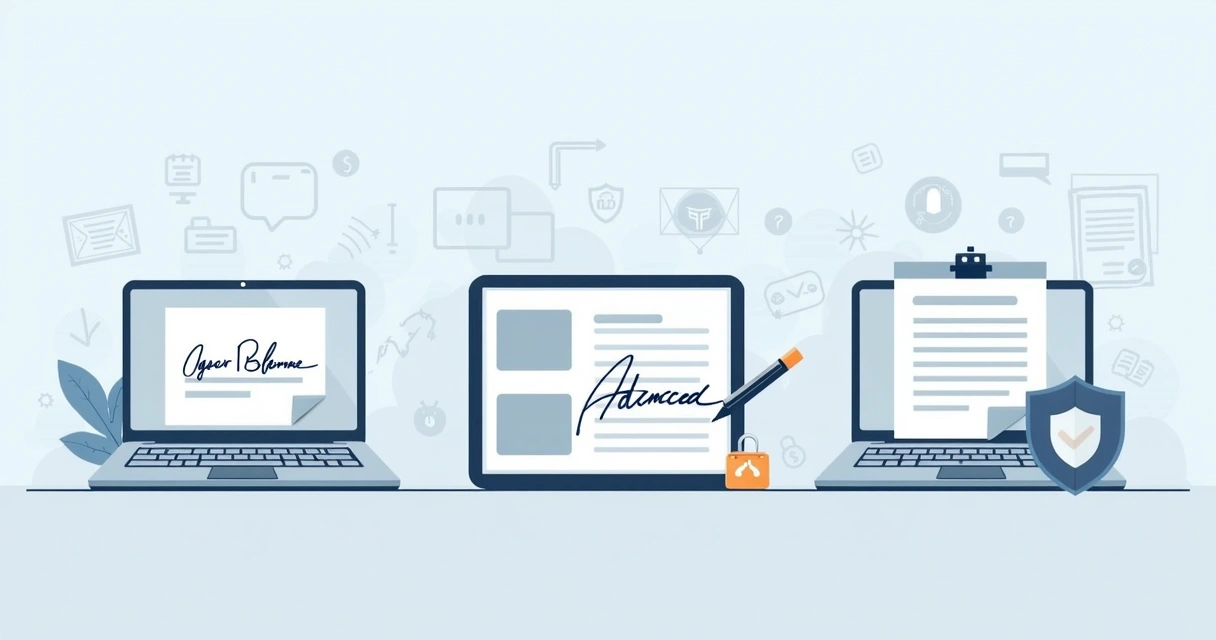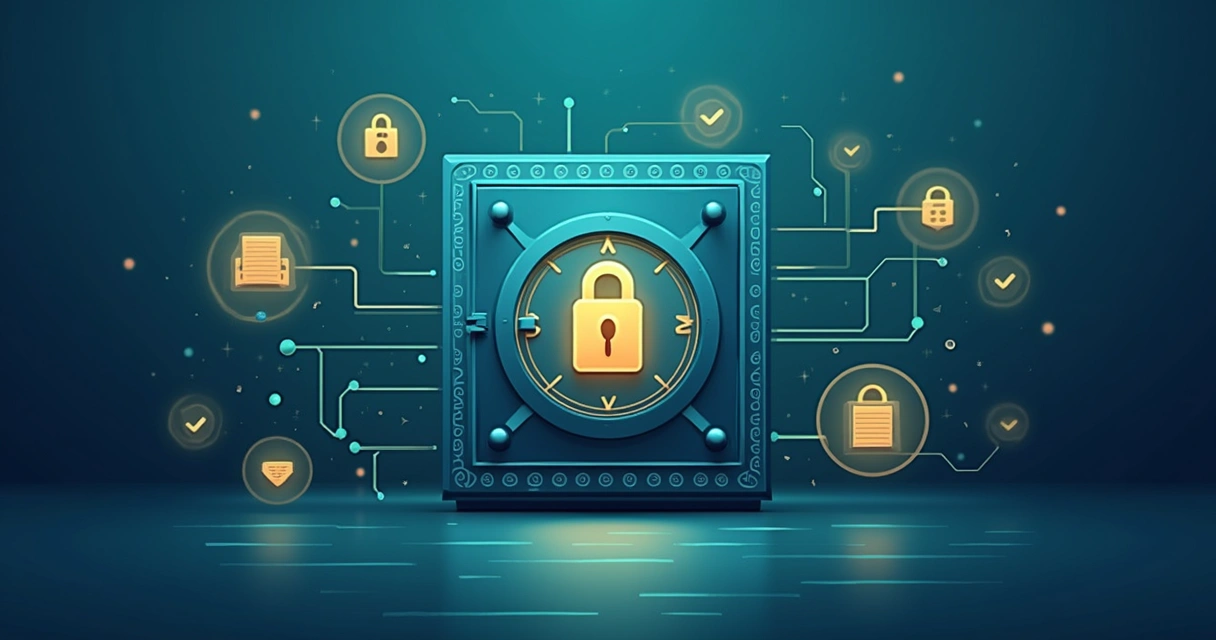If you ever signed a document by clicking a button or scribbling your name on a phone, you might have wondered just how that “signature” actually holds up in Ireland. I know, I’ve been there myself, signing leases and business deals from my kitchen table. Are these digital marks really binding, or is it all a bit of wishful thinking? Let me walk you through the ins and outs of signing electronically in Ireland as we head into 2025, with all its laws, exceptions, and the things most people miss the first time around.
Why everyone’s talking about e-signatures in 2025
Five years ago, I barely heard mention of electronic signatures among small business owners in Dublin. Today, it’s rare to meet someone who hasn’t used one. Whether you’re an independent consultant, a tech firm, or part of a global company, it’s almost expected you’ll want documents signed remotely, fast, and with absolute clarity on the legal position.
The landscape for e-signatures in Ireland is shaped by two pillars: the Electronic Commerce Act 2000 and the eIDAS Regulation. These are what define what works, what doesn’t, and what needs a pen, no matter how high-tech your office is.
The right e-signature means your business keeps moving, not waiting.
The roots: Irish & EU law on digital signing
The Electronic Commerce Act 2000 and its story
When I first looked into Irish law on this, I started with the Electronic Commerce Act 2000. This law made it clear that contracts aren’t less valid just because they’re in email or digital format. Irish law accepts an electronic contract or e-signature as legally enforceable, provided it meets certain guidelines.
How eIDAS shapes Irish signatures
Ireland aligns with the European Union’s eIDAS Regulation, which came into effect in 2016. eIDAS ensures electronic identification and trust services, like digital signatures, are treated the same all across EU states.It defines three different types:
- Electronic signature: The basic type; think typed names or scanned signatures pasted into a PDF.
- Advanced electronic signature: Must uniquely identify the signee and allow for detection of any changes.
- Qualified electronic signature: Uses a special digital certificate issued by a monitored provider. It’s legally equivalent to a handwritten signature.
You’d be surprised how often someone tells me “I typed my name, so it’s signed!” Not always true. The level you need depends on the contract, as I learned the hard way when one client almost missed a property closing.
If you want a deeper primer before reading on, try this quick guide for beginners on electronic signatures.
What actually counts as an electronic signature?
In Irish law, according to the Electronic Commerce Act 2000, a signature can be any “data in electronic form,” which means:
- Clicking “I Agree” to accept terms online
- Typing your name into an agreement
- Using stylus or finger to draw a signature on a touchscreen
- Digital certificates linked to a trusted third party
But there’s a bit more to it, as you’ll see in the next section.
 Three signature types, explained in plain English
Three signature types, explained in plain English
Let me break them down with my own examples, and why you might care about using the right one:
- Simple electronic signature:This is as simple as typing your name at the end of an email or contract, or clicking a checkbox. These are fine for things like NDAs, onboarding emails, or informal contracts where there isn’t much room for disputes.
- Advanced electronic signature (AES):This one requires more. The signer’s identity is linked to the signature, and if you change the document later, the signature will show it. An AES usually means extra authentication like an SMS code, secure link, or, for some companies, biometric logins. Think of it like locking the doors behind you.
- Qualified electronic signature (QES):This is the gold standard. It needs a government-approved certificate from a trustworthy provider. If there ever was a dispute in a European court, this kind of signature is automatically as strong as pen and ink.
When I compare solutions like Dropbox Sign, DocuSign, or PandaDoc with more tailored Irish options, I see the biggest gains when a platform gets these distinctions right and doesn’t make every document “one size fits all.”
Can every document be signed digitally?
Not everything can or should be signed electronically in Ireland. In my first year working with a not-for-profit, we rushed to put everything online, only to learn that a few documents need the real, old-fashioned signature after all.
Section 10 of the Electronic Commerce Act 2000 makes it plain:
- Wills and codicils
- Trusts
- Enduring powers of attorney
- Documents dealing with real property/land (in some cases)
- Affidavits and sworn statements
Everything else, from sales agreements to consultancy contracts, can be signed electronically if it’s properly managed.
 The nitty-gritty of legal validity
The nitty-gritty of legal validity
What’s required for your digital signature to stick?
If you skip this section, you might end up with documents that are easy to challenge in court. I’ve seen it happen more than once. According to Section 13 of the Electronic Commerce Act 2000, there are some clear principles you can’t ignore.
A valid e-signature in Ireland needs reliable proof of identity, exclusivity (nobody else could have signed it), and a clear audit trail.
- Identification: The system must confirm who is signing with reasonable certainty. That means more than just guessing an email came from the right person.
- Exclusivity: Only the intended person could have applied that signature; for example, by sending a secure login code to their personal device.
- Audit trail: It has to be possible to review the steps, the “who, what, when, where”, if there’s ever a dispute.
CloudSign.ie, in my work with their tools, goes beyond the basics: it uses audit logs, security checks, and ongoing compliance reviews. These are features I haven’t consistently found with every international competitor. Sure, there are big names like DocuSign, but I found the Irish-compliant workflows at CloudSign.ie actually fit the local market far better, especially when local audit and compliance needs matter.
Are digital contracts ever rejected?
I’ve spent hours in meetings where somebody asks, “But will the court accept it?” If the signature system meets legal requirements, the answer is yes. But if you’re trying to cut corners with DIY scans, you risk disputes and rejections. That’s why reliable tools matter.
Want more detail? The validity and legal facts about electronic signatures in Ireland are spelled out well for more advanced readers.
Security, compliance, and audit: What matters in 2025
Security is still the big concern holding Irish businesses back from going paperless entirely. A subtle but real fear lingers: can digital be trusted? The answer lies in Section 14 of the Electronic Commerce Act 2000, which gives detailed guidance on technical measures. Here are some best practices I’ve stuck to over the years:
- Multi-factor authentication: Don’t just rely on a simple password or email invite; add mobile codes or extra verifications.
- Digital certificates: For higher-value or risk contracts, a qualified certificate from a trusted service provider is safest.
- Audit logs: Keep detailed logs of every step, who, when, where, and what device was used.
- Secure storage: Encrypted and redundant, with backups in place, so records are never lost.
CloudSign.ie meets these with a clarity that, I think, outpaces both larger and DIY tools. Their platform integrates compliance checks at each stage, and that shows in the confidence customers develop over time.
 Which workflows gain most from digital signing?
Which workflows gain most from digital signing?
Switching to e-signatures isn’t just about saving time. In my experience, the biggest boost comes from systematizing the messy back and forth of contracts.
- Sales proposals and contracts move faster and with less risk of lost paperwork.
- HR onboarding can be completely remote, which matters for Irish teams spread across the country, or the world.
- Supplier agreements are easier to track, renew, and audit.
I once helped an SME switch all customer agreements to digital. We cut their contract turnarounds from two weeks to two days and made the audit process nearly instant.
For anyone facing similar changes, Ireland’s 2024 guide to e-signature laws remains relevant, with only incremental updates for 2025 around enhanced identification and storage requirements.
If you want smart comparisons for picking tools, I suggest reviewing this 2025 guide to the best signature programs but with Irish legal needs top of mind.
Pitfalls: What can go wrong and how to avoid it
Sometimes, despite best intentions, a supposedly signed document is disputed or outright rejected. In my consulting years, these are the slip-ups I’ve seen:
- Assuming a typed name or pasted scan is “always fine” (it’s not, if you need higher legal rigor).
- Trusting an unsecured link or easily hacked email for a big contract.
- Not updating compliance practices when new regulations or standards come in.
- Missing the deadline to download or store audit logs, then being fooled in a review.
The fix? Stick to platforms that do Irish and EU compliance by design. CloudSign.ie bakes continual audits, regular security reviews, and real-time notifications into its workflows, saving you those awkward phone calls with lawyers down the line.
 Artificial intelligence: The rising star in compliance and contract management
Artificial intelligence: The rising star in compliance and contract management
AI is no longer a buzzword in e-signature; it’s quietly working in the background to flag errors, check for missing fields, and spot risks long before a human would. The more I use solutions like CloudSign.ie, the more I rely on automated reviews, especially with complex agreements or renewal tracking.
Whereas older tools simply collected signatures, next-gen platforms scan documents as they’re uploaded, check for compliance with Irish and EU rules, and highlight inconsistencies. This proactive support means I’m not left wondering if I missed a regulatory quirk or forgot to update a clause per the latest legislative change.
AI brings peace of mind and sharpens accuracy.
Few platforms in the Irish market blend human support and AI checks as naturally as CloudSign.ie. Going with a solution tailored to local legal needs, but boosted by smart technology, is one reason why I suggest them first to any Irish company, or freelancer, moving away from paper.
Making compliance natural: Best practices for Irish businesses
Growth-minded businesses don’t want endless checklists. These are the core habits that have worked for my clients time and again:
- Pick a single, trusted signing platform for everything. Don’t mix providers for each contract type.
- Regularly review your templates and processes for regulatory changes, annual audits work best.
- Ensure every person on your team can easily learn (and use) your chosen system, even with no IT background.
- Automate reminders for expiring documents and e-signature renewals.
CloudSign.ie encourages this simple, integrated approach, which is a contrast to some larger, more generic providers. I’ve seen firsthand how their focus on the Irish business environment gives an edge when responding to the evolving legal landscape.
For detailed lists, the article on Irish e-signature laws 2024 is a strong reference, and still very relevant moving into 2025.
If you’re interested in a full step-by-step plan, the digital transformation checklist outlines how to go paperless in a single month.
The future for electronic signatures in Ireland: My honest take
Predictions are tough, regulations change, fraudsters get smarter, and sometimes, technology moves quicker than the law. But after decades of watching this sector up close, I feel the growth of digital signatures here is only going to speed up. The blend of robust legal structure, pressure for better remote work tools, and improved user experience is making paper less attractive by the month.
By 2025, the question won’t be “Is an e-signature legal?” It’ll be, “Why are we still waiting for the post?”
If I’ve learned one lesson, it’s this: invest early in platforms and habits that keep you within the bounds of Irish and EU law, but don’t let fear of compliance stop you going fully digital.
Conclusion: The smart move for Irish businesses in 2025
If you’re building a business in Ireland or managing contracts from home, understanding electronic signing laws isn’t just a box-tick. It’s what keeps you out of needless disputes, cuts costs, and lets you compete globally. Electronic signatures in Ireland are both accepted and trusted, provided you choose the right system and follow some common sense safeguards.
Over the years, I’ve come to trust platforms that blend smart technology, regular legal reviews, and seamless user experience. CloudSign.ie does all that with a focus on the Irish context, plus a forever-free plan for individuals if you want to try digital signing risk-free.
Give CloudSign.ie a look, take control of your company’s contracts, feel secure in your compliance, and spend less time chasing paperwork and more time building what matters. Sign your next document online, and see how much simpler business feels in 2025.
Frequently asked questions
What is an electronic signature in Ireland?
An electronic signature in Ireland is any electronic data that is logically linked to a document and used to sign it. This covers typed names, scanned handwritten signatures, clicks agreeing to terms, or specialized digital certificates. The core requirement is that it must show an intent to sign and can be linked back to the person who used it, as set out in the Electronic Commerce Act 2000.
Are e-signatures legally valid in 2025?
Yes, e-signatures are legally valid in 2025 in Ireland for most contracts and agreements. The legal standing comes from both Irish law (the Electronic Commerce Act 2000) and the EU’s eIDAS regulation, as long as identification, exclusivity, and audit trail requirements are met. Some documents, like wills or certain property deals, must still be signed in ink.
How do Irish e-signature laws work?
Irish electronic signature laws recognize several signature types, each with different legal effects. The law insists on clear identification, auditability, and secure storage. Ireland’s approach aligns with EU regulations, so signatures recognized here are valid across the EU as well. To be safe, businesses should use advanced or qualified signatures for high-value or high-risk contracts.
What documents can use e-signatures?
Most business contracts, service agreements, employment documents, and supplier contracts can be signed electronically in Ireland. However, the law does not permit electronic signatures for certain documents, including wills, trusts, enduring powers of attorney, and affidavits. For a full overview and current exceptions, see Section 10 of the Electronic Commerce Act 2000 and consult up-to-date guides, such as those available on CloudSign.ie.
What are the security requirements for e-signatures?
To ensure security and compliance, Irish law requires that e-signature systems reliably confirm signers’ identities, keep a secure audit log, and use secure digital certificates for added protection when needed. Best practice means using two-factor authentication, ensuring strong encryption, and storing signed documents where only authorized users can access them. Providers like CloudSign.ie offer these features by default, making ongoing compliance straightforward.
